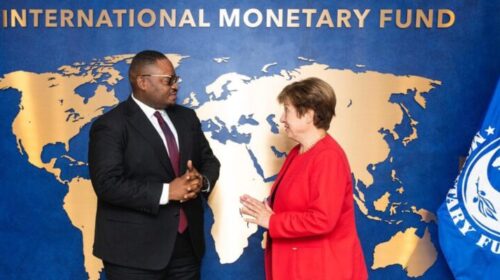DRC Suffers Nearly $1 Billion in Damages from Oil and Gas Block Dispute
The Congo is not for sale (CNPAV) coalition denounced, during its recent press conference, the attitude of the Minister of Hydrocarbons Didier Budimbu, whom it accuses of maintaining opacity in the process of selecting operators for some oil blocks.
Received in the “Transparency” column of ACTUALITE.CD, Lewis Yola, expert in downstream oil and in the negotiation of oil contracts, member of the CNPAV, estimates the losses incurred by the DRC at 1 billion USD if the opacity which characterizes the process allocation and negotiations of oil and gas blocks is not lifted.
”Today if we take the risk of selecting the companies that will not be able to exploit the oil, the Republic would risk withdrawing the titles at a certain moment.
And to do this, the Republic would risk paying the damages. This is what we fear because the Republic could pay sums which can approach 1 billion US dollars. It will be enormous for the state budget. We are preventing this, “explains Lewis Yola.
In his revelations, Lewis Yola also points out that the oil company Perenco Rep causes the Republic to lose at least 40 million USD following the non-payment of two tax headings, superficial tax and royalties.
“The signature of the 9th amendment for Onshore production was done in the old system. It causes enormous damage. For example, at this stage Perenco REP is not obliged to pay the superficial tax. The latter requires a company in operation to pay $500 per Km² used in its concession.
Today, by combining Offshore and Onshore, Perenco REP uses more than 6,000 Km².By doing 6,000 Km² with $500 per month, that is around 35 million USD per year that Perenco has to pay. So the DRC loses more than 35 million USD per year just in superficial tax”, reveals Lewis Yola.
“Compared to royalties, Perenco uses the old system which does not concern its overall production. This results in a shortfall of 2 million USD per year. Each year the DRC loses a sum of at least 40 million USD in relation to two headings”, fiscal.
To enable the Republic to replenish the public treasury, he calls on the President of the Republic to take an interest in this question.
Concerning the exploitation of the oil zones in the DRC, Lewis Yola considers it necessary that the oil sector of the DRC first go through in-depth studies before deciding whether or not to effectively exploit these resources.
![]()





